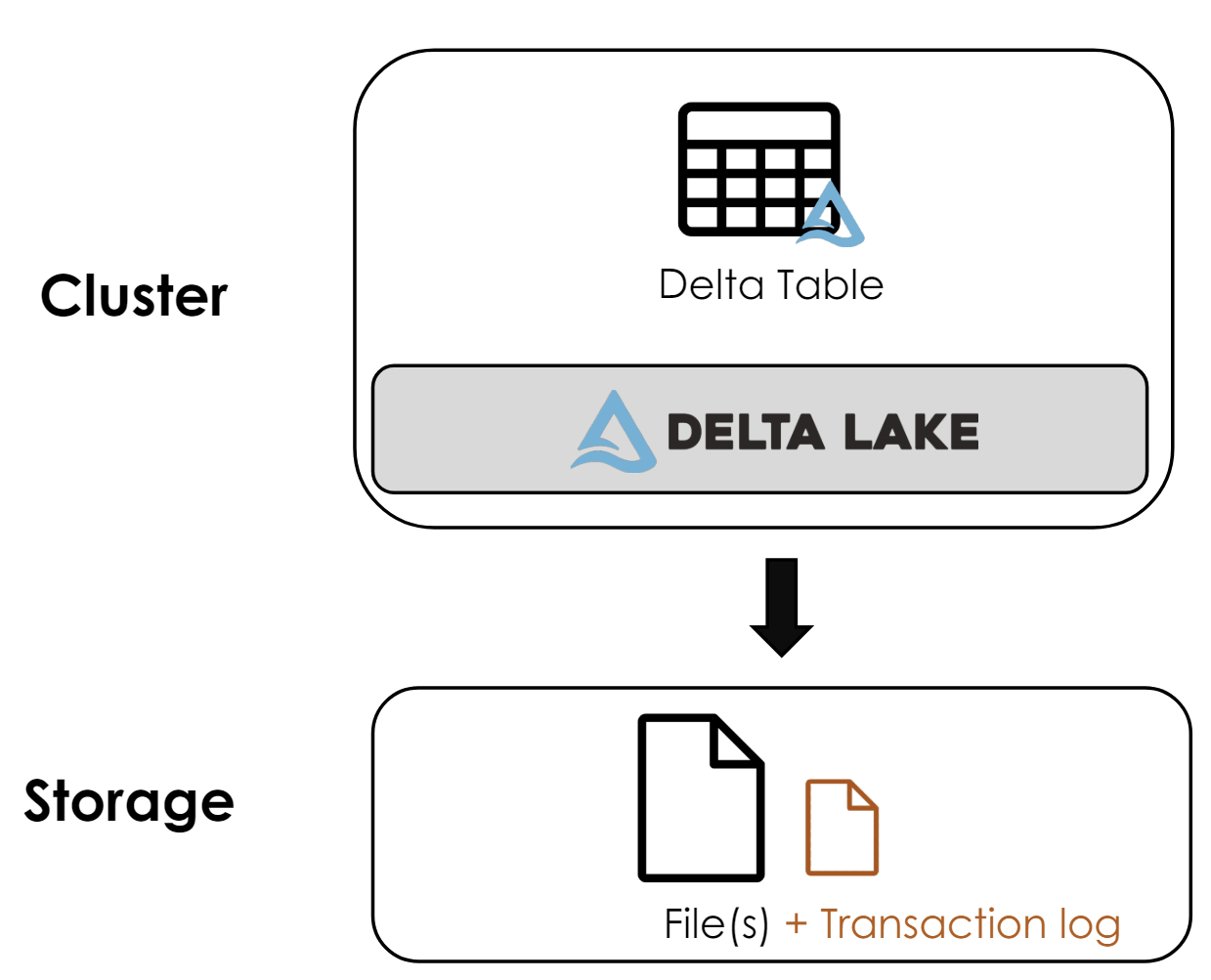Delta Lake is an open-source storage framework for Spark that enables relational database capabilities for batch and streaming data. It brings the reliability to data lakes to overcome the problem like data inconsistency and performance issues
Delta lake is just a framework to combine data warehouse and data lake to build an agnostic lakehouse architecture. It is a component deployed in the cluster as part of databricks runtime. It itself is not a storage format/ storage service
Delta tables are schema abstractions over data files that are stored in Delta format. For each table, the lakehouse stores a folder containing Parquet data files and a _delta_Log folder in which transaction details are logged in JSON format.

transaction log (delta log):
- ordered records of every transaction performed on the table )
- ACID transactions
- Single Source of Truth - full audit trail of all changes
- JSON file contains commit information:
- Operation performed + Predicates used (eg condition/ filters)
- data files affected (added/removed)
The data is written and read by writing and reading process separately, ensure you got the latest written files, ACID compliance and avoidance of deadlock state.
The benefits of using Delta tables include:
- Relational tables that support querying and data modification. With Apache Spark, you can store data in Delta tables that support CRUD (create, read, update, and delete) operations. In other words, you can select, insert, update, and delete rows of data in the same way you would in a relational database system.
- Support for ACID transactions. Relational databases are designed to support transactional data modifications that provide atomicity (transactions complete as a single unit of work), consistency (transactions leave the database in a consistent state), isolation (in-process transactions can’t interfere with one another), and durability (when a transaction completes, the changes it made are persisted). Delta Lake brings this same transactional support to Spark by implementing a transaction log and enforcing serializable isolation for concurrent operations.
- Data versioning and time travel. Because all transactions are logged in the transaction log, you can track multiple versions of each table row and even use the time travel feature to retrieve a previous version of a row in a query.
- Support for batch and streaming data. While most relational databases include tables that store static data, Spark includes native support for streaming data through the Spark Structured Streaming API. Delta Lake tables can be used as both sinks (destinations) and sources for streaming data.
- Standard formats and interoperability. The underlying data for Delta tables is stored in Parquet format, which is commonly used in data lake ingestion pipelines. Additionally, you can use the SQL analytics endpoint for the Microsoft Fabric lakehouse to query Delta tables in SQL.
See how to: